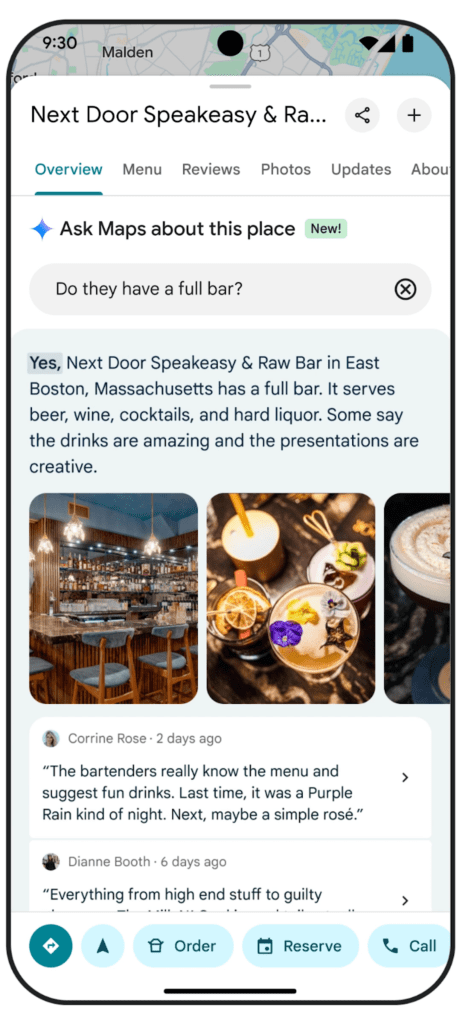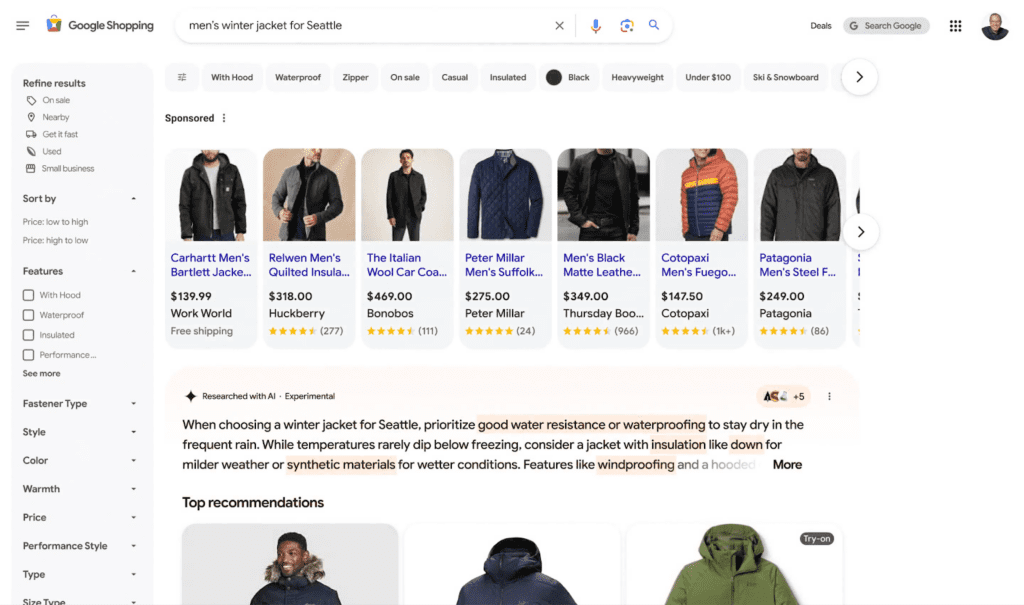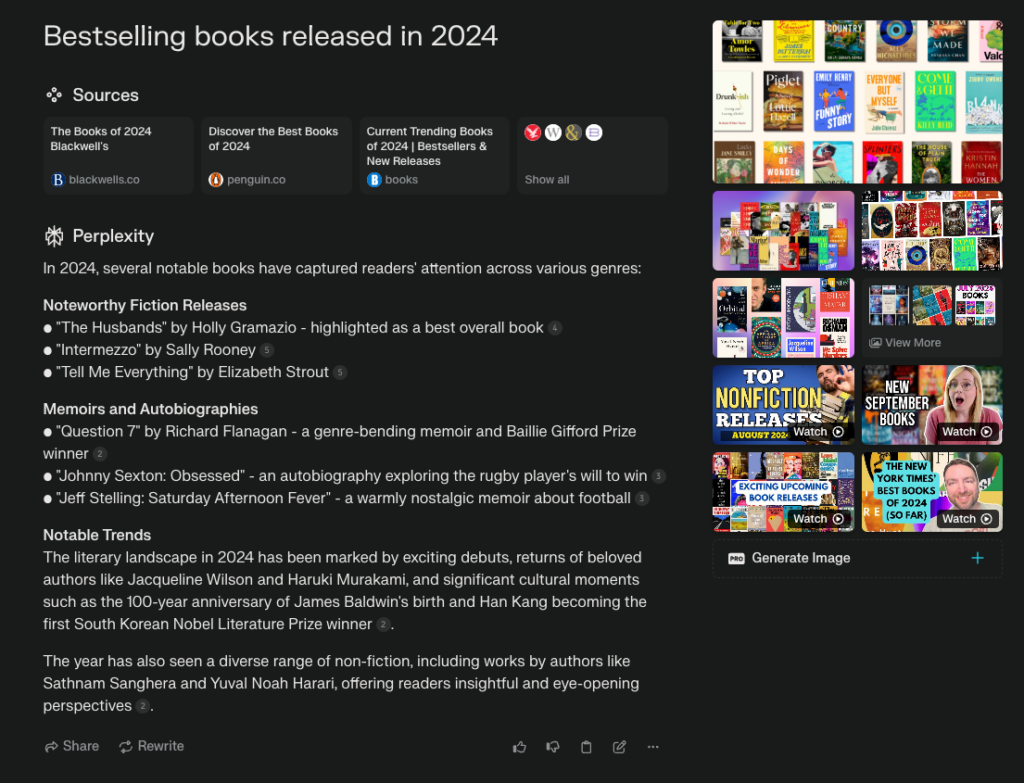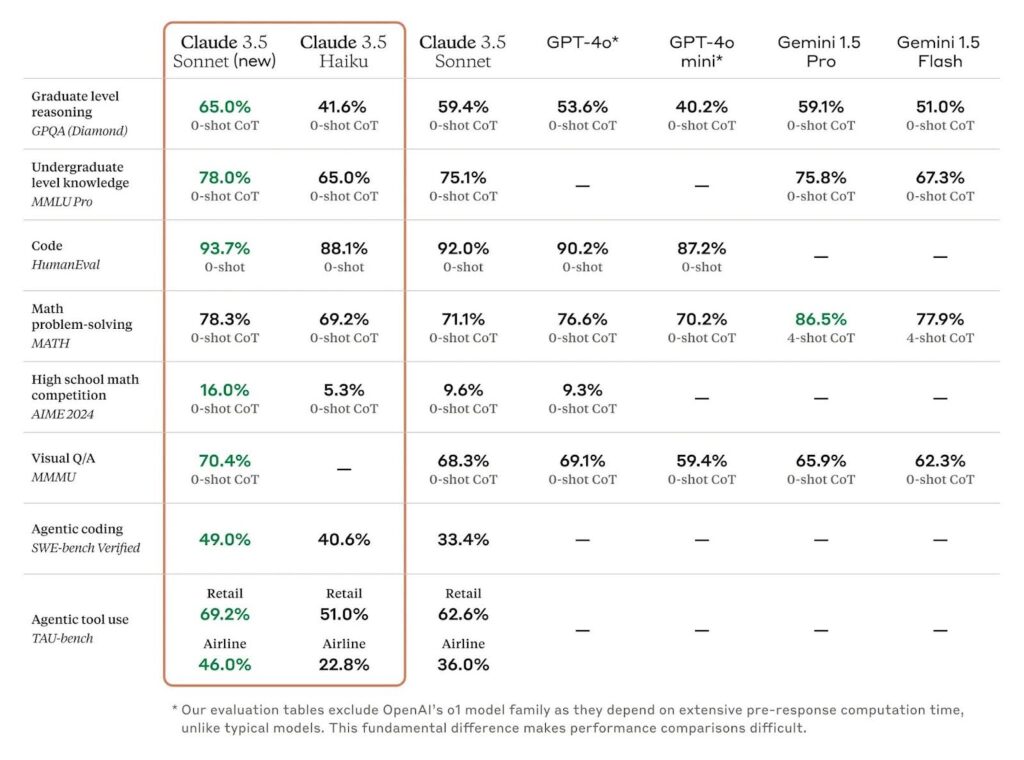Gemini, GPT, Claude, Perplexity… just a few of the AI-powered search tools that tantalise us with new possibilities. For those old enough to remember life before social media, tech booms like the dot com bubble and innovations like napster, the iPod and the iPhone were landmark moments, the emergence of AI feels like another As AI usage continues to accelerate, we’ll see shifts in human behaviour, whilst publishers, brands and tech providers vie for our attention.
Over the past 12 months there have been more rapid changes in search than since its advent. This article looks to explore those changes in a little more detail, prioritise their importance and project their possible futures.
AI Overviews
AI Overviews are one of the biggest and most significant changes we’ve seen in Google search. Whilst some might say that they’re simply glorified featured snippets, I believe that AI overviews are just a foreshadowing of what’s to come. A more personalised, cognitive augmented search experience.More on this theory in a bit.
AI overviews take us away from the traditional 10 (or so) blue clicks search has used for so long. We’ve all seen and heard about incorrect AI answers (‘glue on pizza’) but as with any emerging technology, a grace period for de-bugging has to be factored in.

There’s no doubt that the quality of AI overviews has improved since their turbulent start. To put the development in context, AI overviews are for the most part, only making up about 4 – 7% of the overall search queries we’re seeing for clients (this will vary depending on industry).
AI Overviews rolled out to countries outside of the US in August 2024, with a further release to more than 100 countries in October 2024. They provide a wealth of opportunities to be discovered, from product snippets to content citations and references. Whilst this article doesn’t dive into the ways to rank in the AI overviews, there is more to come. Speaking of more to come, Google announced in October 2024, advertisers using shopping, performance max campaigns are eligible for paid ads in AI Overviews.
Gemini in Google Maps
One of the recent updates announced in November was Gemini’s introduction to Google maps. This new feature allows users to receive Gemini’s curated answers to questions about a place and queries like ‘things to do with friends”.

AI in Google Shopping
October saw a much needed revamp of Google shopping., The introduction of Gemini’s AI powered briefs, displays the most relevant products, integrated citations to product review content, and virtual try on features.

Google has certainly ramped up AI integration across their suite of search features. This is indicative of the longevity and power of AI in search. These developments to Search, Maps and Shopping provide more scope for brands and websites to be seen in search.
Perhaps the biggest changes are the emergence of technology and features that have the potential to disrupt Google’s dominance in search. Let’s explore this further.
Perplexity.ai
Perplexity is a free to use AI search engine which its marketing claim‘is designed to revolutionise the way people discover information’.
Perplexity’s USP, is the speed of its responses and referencable sources. Answers are backed by citations from trusted sources such as news outlets, academic papers and established blogs, so it feels like you’re gaining better quality, more trustworthy results. This is an absolute win for LLM / Gen AI tool users who are fed up with the questionable quality of Google outputs. Perplexity is becoming a bit of a go-to for me, whether for quick answers to trivia, a news round up or summarising articles.

According to Araving Srinivas, Perplexity’s CEO, the AI search engine is now receiving 100 million queries each week / 400 million a month, up from 250 million queries in July.
So, how are they able to offer a free search engine and how can it promise quality without compromise? Well, their business model relies on subscriptions for a pro version of the tool “designed to enhance the search experience”.
At $20 per month, Perplexity Pro includes unlimited quick searches, 300+ pro searches per day (more detailed responses to complex questions), unlimited file uploads and file analysis, longer conversation history, and API access.
Whilst perplexity’s use is growing, it’s not been without some controversy. There’s been a legal tussle with publishers such as the New York post and Wall Street Journal over content misuse. Along with rumoured affiliate links being found within product based queries (Marcus Tober). But perhaps that’s what it takes to be a disruptor? That and gaining the financial backing of moguls like Jeff Bezos!
I’m expecting the platform to need to embrace ads at some stage. Whilst the development will provide more opportunities for publishers in the paid ad space, they will need to find a balance between maintaining quality results to satisfy core users, and making enough revenue to be a challenger.
Brands and websites will need to monitor the % of traffic being driven by such tools, as currently the referral traffic isn’t changing the world. I for one will be watching this space and so should webmasters, use of these tools is inevitable, and the opportunities they present are worth the focus.
OpenAI’s Search GPTChatGPT search went live at the end of October 2024. While the experience is in its infancy, the introduction of search capabilities in GPT could be a game changer.

ChatGPT uses its search feature to access the web and provide links to web sources. GPT will access its search functionality automatically, based on user inputs. However, users can choose to use it by selecting the search web feature.

Open AI claims that Chat GPT Search is designed to get useful answers, easier and faster, answering complex search queries with quality results. This will certainly rival Perplexity, so the race between the two is on. But the big question is, do they have enough gas in the tank to catch up with Google?
I’ve been impressed with the results and capabilities of GPT Search, and Open AI continues to tout their standalone search engine, which is currently in its experimental phase. I use GPT daily, and for me, the search feature could result in me sticking with them rather than using other LLM tools.
These platforms provide more opportunities for brands and websites to be found. The key is to be where your users are. Whilst there’s no usage data currently available, watching the referral traffic figures over the coming months will reveal all.
Anthropics Claude AI
Another tool that is a regular in my arsenal is Claude AI – developed by Anthropic, an AI safety and research company. The language model is designed to assist users with a wide range of tasks:
- Writing assistant – proofreading, brainstorming and ideation
- Research tool – summarising documents, answering questions, breaking down complex topics
- Coding support – writing and debugging code, explaining languages and concepts.
- Searching – for news, products, brands, articles
Claude boasts a powerful model – Claude 3.5 Sonnet – that outperforms GPTs 4o model for reasoning, coding and math problem-solving.

Claude really excels in its advanced reasoning capabilities, it can perform complex cognitive tasks beyond simple pattern recognition or text generation. Anthropic continues to enhance Claude AI’s capabilities, focusing on safety, accuracy, and user experience to provide a reliable AI assistant for various tasks.
The impact of AI on search functionalities
AI has the power to drastically change how we approach search capabilities and search engine marketing. My top level summary of AI’s impact on search is:
- Hyper Personalised results
The more we interact with LLMs the better they will understand us, resulting in outputs that are far more personalised than ever before. - Going Deeper
The AI Overview experience and conversational nature of GPT and Perplexity, will mean that we can dive deeper into searches. This will facilitate deeper research, gaining further clarity and understanding new topics.
Enhanced understanding of user intent
Natural Language Processing powered by AI allows for a far better understanding of users’ search inputs. Google currently does this with its BERT and MUM models.With continuous development of Open AI’s models, the enhanced understanding of user intent is bound to excel.
Improved Quality & relevance
There is no doubt that quality is key, not just content. The new tech search race is on, and the winners will be the ones who can get us the quality results we need at the speed we need it.
Voice and Conversational functions
The way we search with tools has changed. We have mobile, Google lens (which will enhance), voice recognition (which has improved tenfold), LLMs (which will adapt to improve their understanding of voice conversations. The conversational nature of these tools allows iterative refinement to get the best outputs.
AI’s impact on search functionalities is vast and multifaceted and it will adapt the way users find and interact with information. By making search more intuitive, personalised, and efficient, AI enhances user experiences and sets new expectations for information accessibility.
